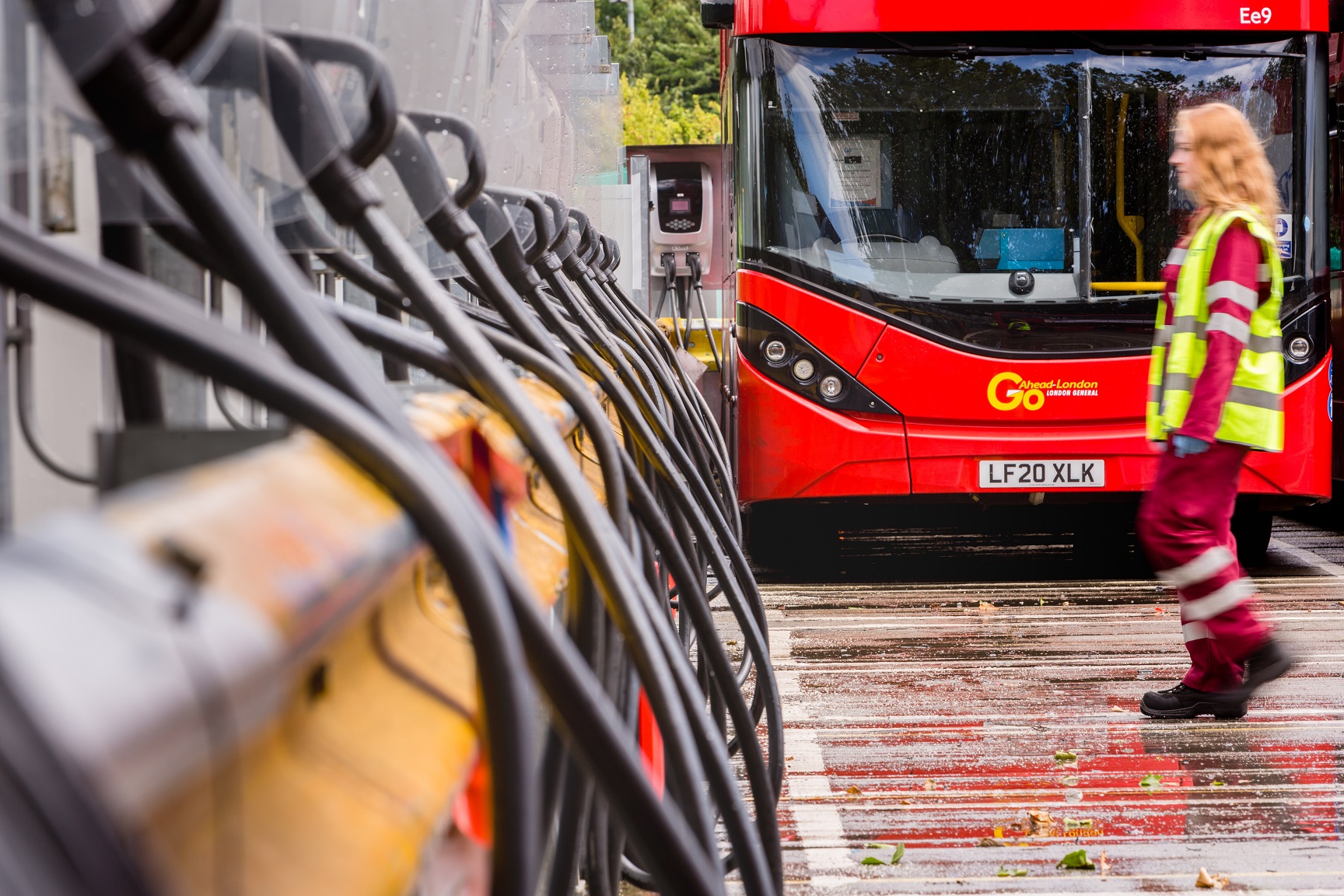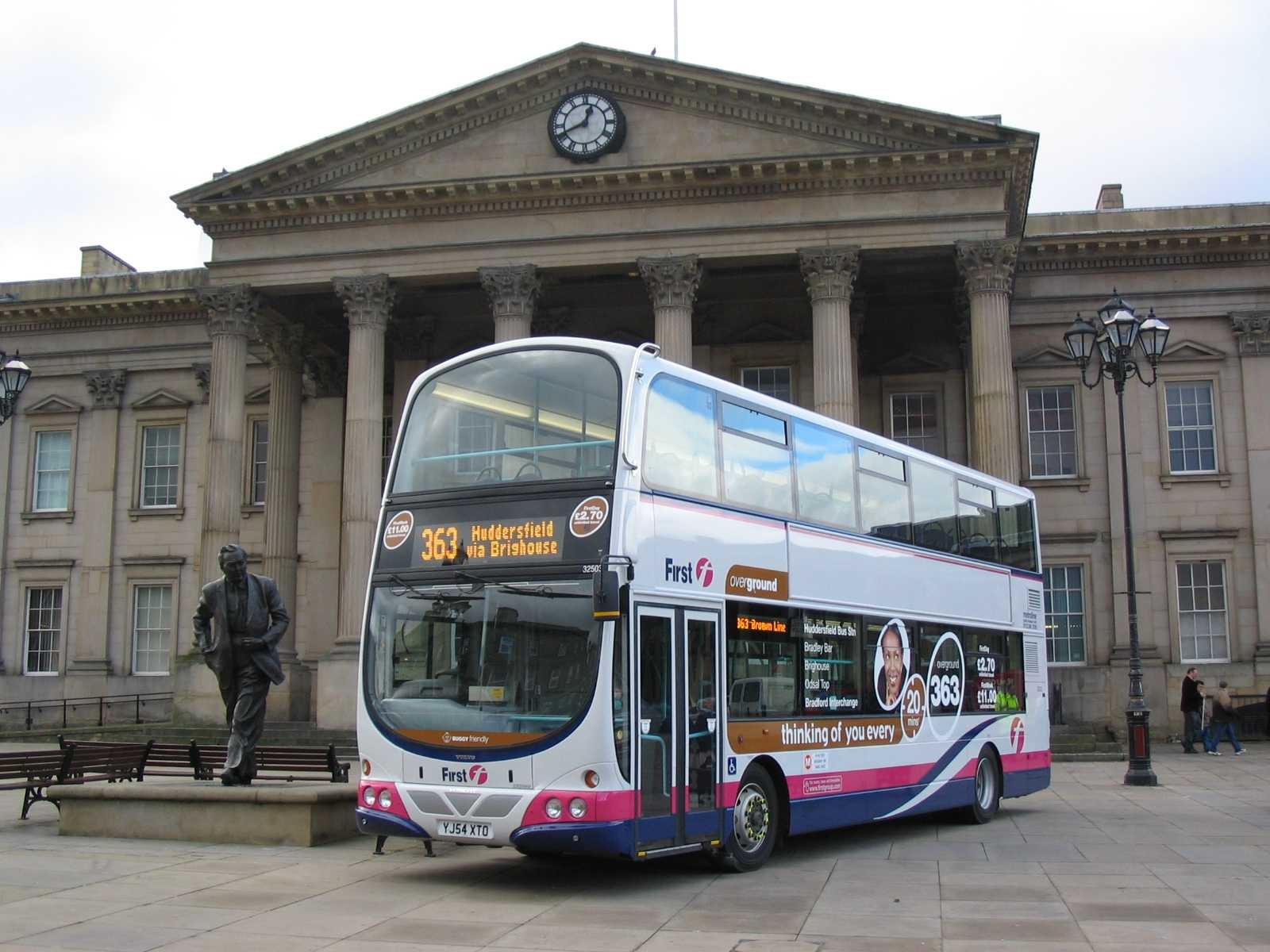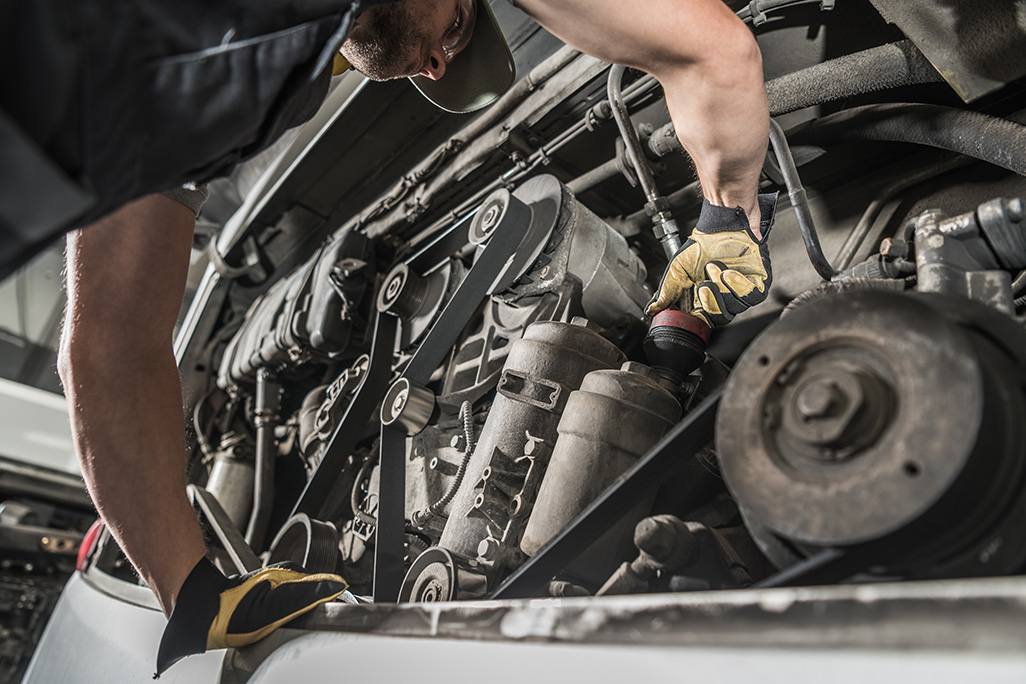Over 2,000 battery-electric buses are in service today in the UK, according to recent Zemo Partnership analysis. That means there are over 2,000 buses’ worth of chargers sitting largely idle for long periods of the day in depots around the country, waiting to be plugged in when the buses return at the end of service.
As businesses across transport and industry clamour for points of connection to a challenged and constrained grid (particularly in urban conurbations), what role might bus depots play in helping to electrify other fleets in years to come?
The need to utilise existing chargers more effectively comes as First Bus recently announced plans to build an electric vehicle charging hub for local businesses and community users at a depot in Cornwall. It follows pilot trials at First depots in Glasgow and Leicester that provided charging for DPD and Police Scotland. Those showed what can be achieved in the constraints of a bus depot when the fleet is mostly in service.
Although the trials were small scale, the potential benefits to other fleets are evident, especially in urban centres. Coach operators immediately come to mind as potential suitors – all too often hamstrung by the lack of available parking in city centres, and already limited by vehicle range in the absence of a strategic motorway charging network.
Utilising existing bus depots in cities – particularly London, which already has a very sizeable battery-electric bus fleet – could help to alleviate problems faced by coach operators (and others) by providing suitable and secure daytime parking with the added perk of being able to recharge. That would also unlock the potential for battery-electric coaches to be operated from further afield into the capital.
Commercial fleets such as last mile logistics providers could also reap the benefits of using city centre bus depots for charging. As the trend for online ordering continues to rise alongside the need for daytime deliveries to keep businesses stocked, both light and heavy goods vehicles could benefit from a conveniently located top-up charge during a daytime rest stop, instead of having to work with constrained loads due to range limitations.
The prevalence of DC CCS2 chargers across the bus sector (Zemo estimates that nearly 70% of battery-electric buses are charged using those) also means a short, high-power charge of 50-75kW is a reality today, opening their use to a wider range of vehicle types.
While the benefits to other fleets are clear, bus operators can also gain from opening up their depots during the day. It would enable them to monetise their charging assets during times that they would otherwise be idle, providing a new revenue stream at a time when margins are tighter than ever across the bus sector.
Implementing this practice, of course, is likely to be a lot more complex than the theory. There are a range of reasons, such as a constrained power supply at the depot during the day, legal constraints on land use, and the obvious safety hazards of operating in a live bus depot.
Nonetheless, on the road to net zero, the need for collaboration and partnership working between diverse stakeholders will be vital. Opening bus depots to other fleets might just be one good example of the sort of opportunities that are now available and which will open up further in the years ahead.



























